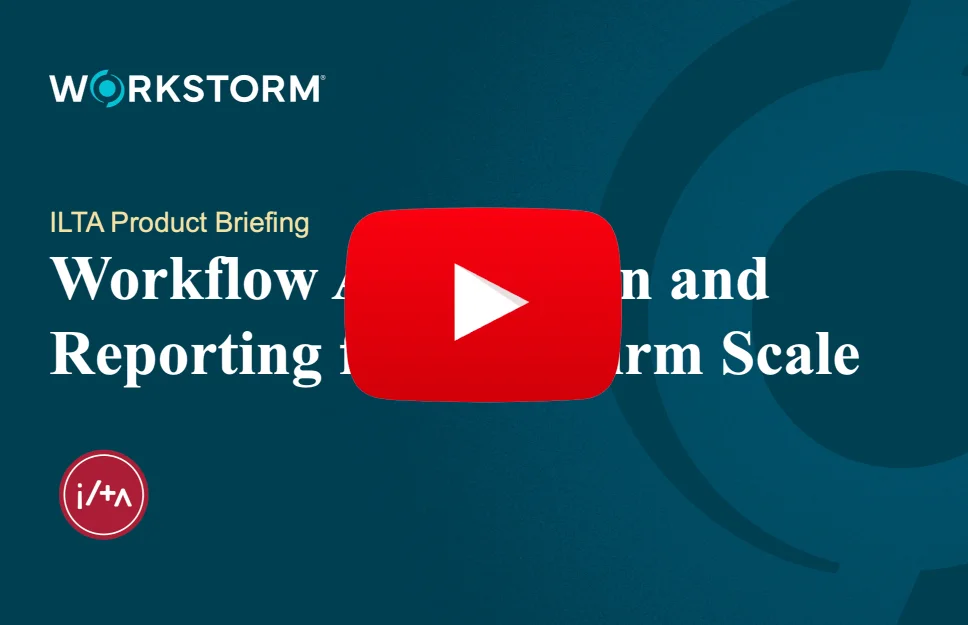The way we communicate in the workplace is changing – and those changes are having a huge impact on how law firms do business.
Where paper, phone calls and emails once ruled supreme, many industries are adopting and using digital workspace solutions to supplement or even replace email. In the legal world, firms are already dealing with clients who want to communicate through text messaging and other digital or social forms of communication.
Specifically, the rise of communication hubs – integrated messaging, conferencing and file sharing – will have a distinct impact on all areas of the legal practice, including discovery. Lawyers have an ethical obligation to understand how these new tools will impact their practice, including how their customers communicate, how firms correspond and share advice with clients, how work product is created and stored, and how conversations could be discoverable in litigation.
The American Bar Association’s (ABA) Model Rules of Professional Conduct states that “a lawyer should keep abreast of changes in the law and its practice, including the benefits and risks associated with relevant technology.” Following the ABA’s decision to incorporate technological competence into its Model Rules, 38 states and counting have adopted similar rules.
The bottom line: The rise of new tools and technologies is inevitable, and law firms have a duty to keep up. Technological competence isn’t optional, and it shouldn’t be limited to your firm’s own technology. Your clients are embracing new tools like workstream collaboration, and your firm may be next – if it isn’t there already. Understanding how these tools work and the associated privacy or ethical implications involved, is always critical.
New responsibilities, new opportunities
According to Computerworld, 91% of firms use at least two chat messaging apps with their clients. However, the actual attorneys themselves are still catching up: The ABA reports merely 6% of attorneys are actually communicating regularly via instant messaging with their clients.
While legal teams need to understand the implications of digital collaboration tools, including how data is managed and stored and how it can be exported and archived, these platforms also offer rich new opportunities.
For law firms, some of the benefits include simpler filing and managing of client records, the ability for a single party to manage correspondence, and recognizing and maintaining client-attorney privilege.
Not all digital collaboration tools are created equal, however. Workstorm was built around the needs of the legal industry, supporting firms in areas like:
- Archiving and exporting. With Workstorm, you can archive and export messages both at a company level and at a conversational level – which reduces the effort involved in discovery on our platform. Other tools make it difficult to export and decipher conversations, leaving users frustrated by jumbled transcripts or far too much information for the task at hand.
- Data deletion and retention. There’s currently no way to apply a defensible legal hold and preserve or delete data in many communication platforms. However, Workstorm allows you to choose what you want to save to meet company-specific retention policies, ensuring you retain access to the critical information you need while eliminating casual conversation.
- Advanced compliance capabilities. Content monitoring and moderation can help companies identify issues proactively to avoid potential lawsuits in the first place. Workstorm offers an array of options to monitor and manage your data, so you and your clients can solve problems before they even occur.
Putting the right tools in place
Equipping your firm with the right set of digital tools is key to smoothly meeting client expectations. For example, pairing a digital collaboration platform with an e-discovery tool can help dramatically streamline discovery work – a tedious and time-consuming task for attorneys.
Not only is managing discovery projects through email inefficient, it’s also inherently insecure and prone to errors. Say your company finds a “hot doc” email that could turn the case; forwarding that email around to the internal or external litigation team only makes the communication trail that much longer and the risk of leakage that much greater. Who knows the path of that email from that point? And how might opposing counsel “claw back” that critical document or email if required?
Thankfully, you can use secure, closed-loop conversations and employ e-discovery tools like Relativity to make communications surrounding the discover processes that much more streamlined. We built Workstorm to integrate seamlessly with Relativity and other related tools, making e-discovery even simpler and more secure. By connecting Workstorm to your tool of choice, your firm can:
- Share emails and files directly from Workstorm to your preferred e-discovery tool, and vice versa.
- Save billable hours by sharing direct links in Workstorm to tagged and organized e-discovery documents inside the discovery tool, eliminating the need to draft a separate email that sets the context.
- Discuss materials securely in closed-loop message channels that team leads can control and monitor tightly. This helps to avoid security risks that arise from emailing sensitive documents.
- Manage discovery more efficiently with Workstorm’s project management tools, including alerts, tasks, queries and reminders to keep teams on task.
Discovering the future
Serving clients effectively means understanding the tools that power their businesses – and choosing to meet them there by adopting similar tools inside your firm. Client and law firm collaboration is an area that’s particularly ripe for change, and understanding how your clients are already using digital collaboration software is crucial to managing the ongoing relationship effectively. As technology redefines the practice of law, firms that recognize and embrace these changes sooner than later will lead the way.


